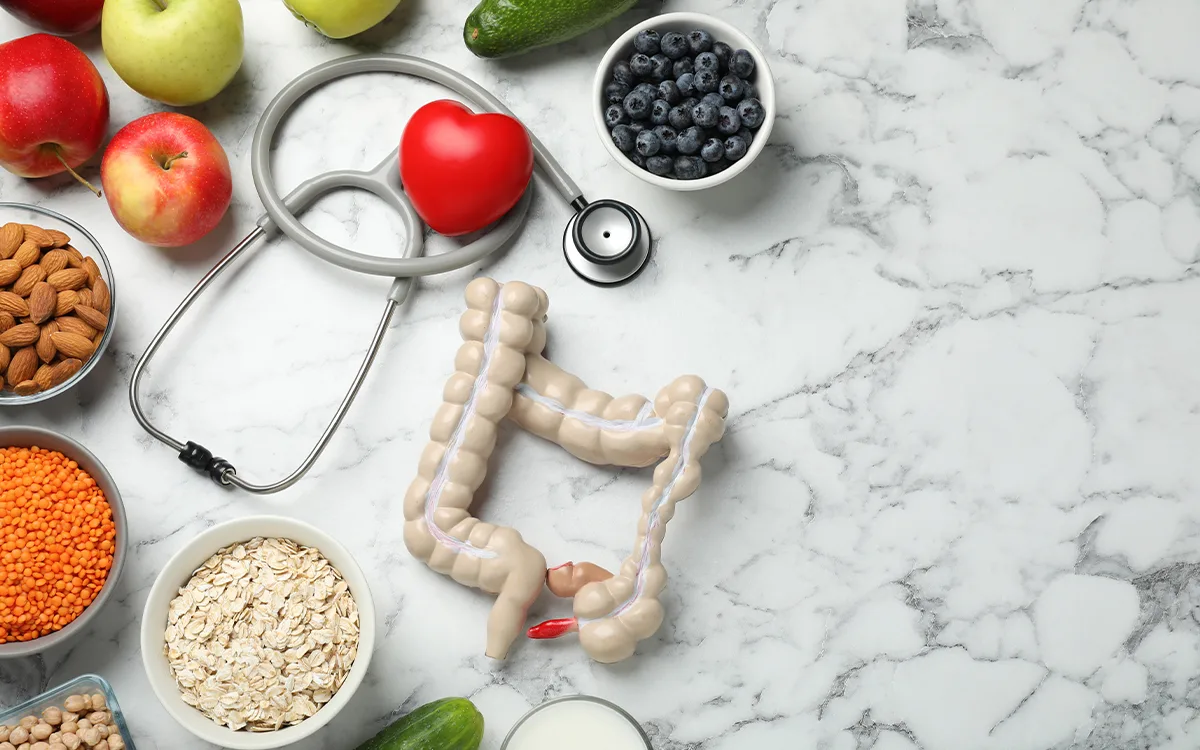Have you ever wondered why some days you feel constantly hungry, while on others your appetite is low? It might not just be about your mood or how much you ate the day before. Your gut health and metabolism play a big role in how hungry you feel, how much energy you use, and even your overall weight.
Inside your digestive system are millions of bacteria and chemical messengers that help your body decide when to eat and when to stop. These systems also guide your energy intake and help maintain energy balance. In this blog, we will explore how your gut and metabolism affect appetite, and why hormones like GLP-1 and PYY are important in this process.
What does your gut do besides digesting food?
Your gut does much more than just break down the food you eat. It acts like a smart communication center that sends signals to your brain, helping you feel full or hungry.
Inside your gut are trillions of tiny bacteria, known as the gut microbiota. These bacteria help your body process certain foods, make important vitamins, and produce short-chain fatty acids that can affect your hunger signals. The balance of these bacteria, known as gut microbiota composition, can play a key role in how your appetite is regulated.
How does metabolism control hunger?
Your metabolism is the process through which your body turns food into energy. A balanced metabolism ensures that the body uses energy properly and keeps your energy levels in check.
Metabolism is closely tied to energy intake and body weight. If your body burns energy quickly, you may feel hungry more often. If it burns slowly, you may feel full longer. But it is not just about speed—certain hormones and messengers released during metabolism help control your appetite. This is why people with slow or fast metabolism might experience different hunger patterns.
What are gut hormones and why do they matter?
One of the most important ways the gut communicates with the brain is through gut hormones. Two major ones are GLP-1 (Glucagon-like peptide-1) and PYY (Peptide YY). These hormones are released after you eat and send signals to your brain to tell you that you are full.
- GLP-1 helps slow down how fast food moves through your stomach, giving your brain more time to notice that you are full.
- PYY helps control how much you eat by reducing the desire to continue eating.
Together, GLP-1 and PYY play a key role in regulating energy and controlling appetite. Low levels of these hormones can lead to frequent hunger, while steady levels may help you feel satisfied longer.
How do amino acids and gut bacteria affect appetite?
What you eat also shapes how your gut and metabolism respond. Certain amino acids, the building blocks of protein, can trigger the release of appetite-controlling hormones. High-protein meals often make people feel fuller because of this effect.
Meanwhile, the gut microbiota composition also shifts based on your diet. A healthy balance can support the production of short-chain fatty acids, which help maintain normal hunger signals. Some bacteria may even affect circulating leptin—another hormone involved in hunger and energy balance.
When your gut bacteria are in balance, and you are eating enough protein and fiber, your body is better able to manage hunger cues and energy use naturally.
What are natural ways to support hunger balance?
Several habits and choices can help support your gut and metabolism to better manage hunger:
- Eat a fiber-rich diet with fruits, vegetables, and whole grains to support gut bacteria.
- Include protein in every meal to provide amino acids that help regulate appetite.
- Stay consistent with meal timing to help your body follow a natural hunger rhythm.
- Drink enough water, as mild dehydration can sometimes be mistaken for hunger.
Some people also choose natural GLP-1 supplements to help maintain healthy appetite signals. These supplements are often made with plant-based compounds that support gut health and hormone balance.
Conclusion
Your gut and metabolism work together in complex but amazing ways to help manage hunger, energy intake, and body weight. From the bacteria in your gut to the hormones like GLP-1 and PYY, many systems are quietly working to guide your eating habits.
When your gut is in balance and your metabolism is functioning well, you are more likely to experience steady hunger cues and feel satisfied after meals. On the other hand, poor gut health or metabolic imbalance can lead to discomforts like frequent hunger, cravings, or feeling full too soon.
By understanding how your gut health and metabolism affect appetite, you can make better choices to help support a more balanced relationship with food.
Checkout This Blog: How to Follow a 7-Day GLP-1 Diet Plan?

